CCPV People
 Gürdal Arslan
Gürdal Arslan
Gürdal Arslan received Ph.D. degree in electrical engineering from the University of Illinois at Urbana-Champaign, in 2001. From 2001 to 2004, he was an Assistant Researcher in the Department of Mechanical and Aerospace Engineering, University of California, Los Angeles. In August 2004, he joined the Electrical Engineering Department at the University of Hawaii, Manoa.
His current research interests lie in the design of cooperative (multi-agent) systems using game theoretic methods. Recent applications of his research include autonomous resource allocation for mission planning, multi-sensor deployment, traffic management, and cooperative multi-user MIMO signaling in wireless communication systems. He is a member of the IEEE Control Systems Society and he received the National Science Foundation CAREER Award on "Cooperative Systems Design - Stochastic Games Approach" in May 2006.
 Olga Bogach
Olga Bogach
Olga Bogach is a Ph.D. student at the Economics Department, University of Hawaii at Manoa. She is a Research Assistant for University of Hawaii Economic Research Organization (UHERO). Her research interests include behavioral and experimental economics, international economics and economic development.
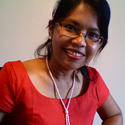 Cecilia Castillo
Cecilia Castillo
Cecilia Castillo is a PhD candidate at the UHM-Department of Sociology. She holds a Master of Ed. from the University of the Philippines and a Master of Development Management from the Asian Institute of Management. Cecilia has extensive experience working on defense and security strategic communications programs and is currently an Area Studies Specialist for the Coherence-based Modeling of Cultural Change and Political Violence (CCPV) Project for Southeast Asia. Her research interests are cybersociology and socio-political conflict.
 Steven Chang
Steven Chang
Steven Chang is a Program Development Specialist belonging to an administrative group under UH System Vice President for Research, Jim Gaines. This group specializes in the management of large contracts and grants, especially those of the multi-disciplinary and multi-institutional variety. He has been involved with projects ranging from biofuels (Cellana LLC and HR BioPetroleum) to homeland security (Center for Maritime, Island and Extreme Environment Security) to psychiatry (Specialized Neuroscience Research Program.) Steven received his Masters of Business Administration and Bachelors of Science in Management and International Business from the University of Hawaii at Manoa. Between his degrees, Steven served as a Peace Corps volunteer in Small Business Development in Mali, West Africa.
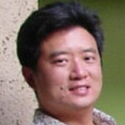 Sun-Ki Chai
Sun-Ki Chai
Sun-Ki Chai is Associate Professor at the Department of Sociology, University of Hawai‘i. He is principal investigator and project director for the Coherence-Based Modeling of Cultural Change and Political Violence (CCPV) project. He has a BS in Mathematical Sciences, an MS in Computer Science, and a PhD in Political Science, all from Stanford University. His main theoretical interests are the study of formal, computational models of culture, as well as their integration with choice-theoretic models of action and network models of structure. His main substantive interests are in international development, with more specific studies on the social construction of ethnic identity and its role in collective action and conflict, as well on the role of cultural institutions in the economic development of East Asian industrializing economies.
Dr. Chai is the author of the book Choosing an Identity: A General Model of Preference and Belief Formation (University of Michigan Press, 2001), characterized as "an incredibly ambitious book" and "an exciting and sophisticated view of decisions" by the American Journal of Sociology, and the co-editor of the book Culture and Social Theory (Transaction Publishers, 1998). He has published articles in journals in the disciplines of sociology, political science, and economics. He has received several extramural grants totalling about $2 million in the area of cultural and behavioral modeling. His website may be found at http://www2.hawaii.edu/~sunki/.
 David Chin
David Chin
David N. Chin is a Professor of Information and Computer Sciences at the University of Hawaii. He received his B.S. from M.I.T. and his Ph.D. from U.C. Berkeley where he developed UC, the UNIX Consultant, an intelligent agent that answers questions about the UNIX operating system and infers a model of the user's knowledge of UNIX from the interaction. David is an internationally recognized expert in the field of user modeling. He has served on the editorial board of the international journal, User Modeling and User-Adapted Interaction since its inception in 1990 and has guest edited six special issues including two on empirical evaluation. He was the program and local arrangements chair of the 2nd International Conference on User Modeling in 1986 and the general chair of the 5th International Conference on User Modeling in 1996, and a program committee member of the 4th, 7th-10th Conferences. Dr. Chin has been the PI or co-PI on 20 grants/contracts totaling $3.9 million. He is currently serving as his department's Associate Chair and has previously served as Vice-Chair and then Chair of the University of Hawaii at Manoa Faculty Senate.
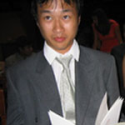 Kar-Hai Chu
Kar-Hai Chu
Kar-Hai Chu is a PhD candidate in the Communication and Information Sciences program at the University of Hawaii at Manoa. He has previously received a B.S. in Computer Science at Johns Hopkins University and M.S. in Computer Science at Columbia University. He has worked in both industry and academic settings on projects including e-commerce development, education and assessment technology, and ubiquitous wireless applications. His current research interests are in socio-technical systems and social network analysis.
 Pantaleo DeCandia
Pantaleo DeCandia
Completed the Bachelors of Science in Engineering degree in Computer Science in 1998 and the Master of Engineering degree in Computer Science in 2001, both from Cornell University. Worked until August of 2008 for R&D firms in Virginia, California, and Hawaii, and more specifically on projects in information assurance, decision support, automated planning, and multi-agent computing. Am presently enrolled in the Master of Science degree in Electrical Engineering at UH-Manoa. Interests and background include machine learning, optimization, and operations research.
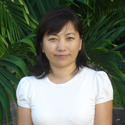 Dolgorsuren Dorj
Dolgorsuren Dorj
Dolgorsuren Dorj is a PhD Candidate at the Department of Economics, University of Hawaii at Manoa. She got her M.A. in Economics from the University of Hawaii at Manoa and bachelor in Political Economy from the Rostov State University (Russia). She taught Economics at the Academy of Management in her home country, Mongolia. She has been assisting various research projects at UHM including coherence-based modeling of cultural change and political violence, impact of cultural factors on human performance, multi-national cultural difference modeling, impact of health insurance regulations on the labor market, and non-point source pollution, watershed conservation. She uses computer-mediated laboratory experiments with human subjects to test and verify predictions of certain models. Her dissertation titled Common Pool Resource with Free Mobility: Evidence from the USA and Mongolia examines sanctioning mechanism that prevents overgrazing when citizens freely move across multiple localities. Her advisor is Katerina Sherstyuk. Her personal homepage can be found at http://dolgorsurend.googlepages.com/.
 Quincy Edwards
Quincy Edwards
Quincy A. Edwards is currently a Ph.D. candidate in the Department of Sociology at the University of Hawai‘i, Mānoa. He holds an MS degree in Agricultural and Resource Economics (2006), an MA degree in Sociology (2005) from the University of Hawai‘i, Mānoa, and a BA degree in Economics from the University of California, San Diego. His current focus is Disaster Research.
Read more...
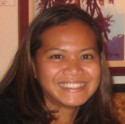 Debbie Gundaya
Debbie Gundaya
Debbie Gundaya is a Ph.D. candidate in the Economics department of the University of Hawai‘i. She completed her M.A. in Economics at the University of Hawai‘i and her B.S. in Economics at the University of the Philippines. Her primary research examines the intersection of international trade and women’s welfare. She has also worked on projects in the fields of health and development economics and is interested in the applications of experimental economics in development research.
 Aaron Herres
Aaron Herres
Aaron Herres is a Master's student in the Information and Computer Science department of the University of Hawaii. He received his undergraduate degree from the Univerity of Puget Sound, and has worked in the industry as a consultant for Microsoft at Avanade. At UH, Aaron previously worked for The Laboratory for Interative Learning Technology, working on mobile augmented reality applications.
 Ruben Juarez
Ruben Juarez
Ruben Juarez is an assistant professor in Economics at the University of Hawaii. He received his PhD in 2008 from Rice University. His research interests are Microeconomic Theory, Game Theory, Mechanisms Design and Network Economics. His webpage is located at: http://www2.hawaii.edu/~rubenj
 Dong-Wan Kang
Dong-Wan Kang
Dong-Wan Kang is a Ph.D Candidate in the Department of Information and Computer Sciences at the University of Hawaii at Manoa. He received his B.A. in Linguistics from Seoul National University, his M.S. in Information and Computer Sciences at the University of Hawaii at Manoa. He also studied Second Language Studies in M.A. program at UHM. His work on M.S. degree was "Combining a local context with semantic relations for Word Sense Disambiguation". He has been involved in various research projects from User Modeling, Natural Language Processing to Neural Network Simulation. He's also interested in Semantic Role Labeling, Ontology Development, Data Mining and Sentiment Analysis. Further information is available at http://www2.hawaii.edu/~dwkang/.
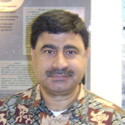 Abdul Karim Khan
Abdul Karim Khan
Dr. Abdul-Karim Khan was born and raised in Peshawar, provincial capital of the North-West Frontier Province of Pakistan. He received a Masters degrees in English, and Indo-Arabian History from the University of Peshawar, and another Masters degree in European Diplomacy from Eastern Washington University, Washington. Dr. Khan’s doctoral dissertation deals with the Red Shirt Movement in the North-West Frontier Province of British India, 1927-1947. Dr. Khan teaches courses in World History, History of Asian Civilizations, and Islamic History and Culture at Leeward Community College, University of Hawaii System. Dr. Khan is currently working on a book-length publication, Understanding Afghanistan.
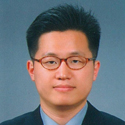 Jang-Hyun Kim
Jang-Hyun Kim
Dr. Jang Hyun Kim (Ph.D. in Communication, State University of New York at Buffalo, 2007) is an expert in computer-mediated communication, conflict communication,political/policy communication, and international communication. His detailed biographical information is available at http://jangkim.net
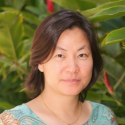 Min-Sun Kim
Min-Sun Kim
Min-Sun Kim (Ph.D., Michigan State University) is Professor in the Department of Speech at the University of Hawaii at Manoa. She has authored more than 60 academic articles published in the premier journals, investigating the role of cognition in conversational styles among people of different cultural orientations, including requesting and re-requesting styles, communication motivation, conflict management, and deception. She is author of the well-received 2002 book, Non-western perspectives on Human Communication: Implications for theory and practice (Sage). Her most recent work is in the area of cultural relativity of communication theories. She is the past Chair of the Intercultural Communication Division of the International Communication Association.
 Ming Liu
Ming Liu
Ming Liu is a PhD Candidate at the Department of Economics, University of Hawaii at Manoa. He got his M.A. and Bachelor degree in Economics from Nankai University, China. His interests cover International Economics, Pharmaceutical Economics, Economics of Intellectual Property Rights, Technological Change and Quantitative Analysis. He is currently doing empirical research on Cross-Culture Comparison.
His homepage is at www2.hawaii.edu/~liuming
 Keisuke Nakao
Keisuke Nakao
Keisuke Nakao is Assistant Professor of Economics at the University of Hawaii, Hilo. His current research interests include, but not limited to, game theory, insurgency and collective decision making. Professor Nakao obtained his Ph.D. in Economics from Boston University in 2008. His webpage is located http://sites.google.com/site/keisukenakao/
 Ilan Noy
Ilan Noy
Ilan Noy is an Associate Professor at the Department of Economics, University of Hawaii at Manoa. He received his PhD in International Economics from the University of California in 2003. His research interests include ethnic minorities and income distribution and development and international economics. His homepage is located at http://www2.hawaii.edu/~noy/.
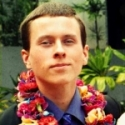 Robert Puckett
Robert Puckett
Robert Puckett is a graduate student at the Department of Information and Computer Sciences, University of Hawai`i at Manoa. He has a BS in Computer Science, and BA in Mathematics both from the University of Hawai`i at Hilo. Robert's masters project involves a particle-based agent simulation of crowd behavior during a tsunami evacuation of Waikiki. Dr. Nancy Reed is his advisor. His main computational interests include multi-agent systems, artificial intelligence, location-based services, and database design. Further academic information is available here, and selected writings are available here. When not working on the computer, Robert enjoys sailing his Columbia 36 with his partner.
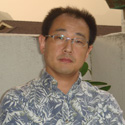 Mooweon Rhee
Mooweon Rhee
Mooweon Rhee is Shidler College Distinguished Associate Professor and Associate Professor of Management at the Shidler College of Business and Cooperating Graduate Faculty of Sociology at the University of Hawaii. His current research focuses on the interplay between organizational identity and organizational learning and on the antecedents and consequences of social networks. His publications appear in diverse leading journals in management and sociology, including Academy of Management Review, Corporate Governance, Journal of Management Studies, Management Science, Organization Science, Rationality and Society, and Strategic Organization.
Read more...
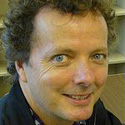 Scott Robertson
Scott Robertson
Scott Robertson is an Assistant Professor of Information and Computer Sciences at the University of Hawaii. He received his B.A. in Social Science from the University of California at Irvine, his M.A. in Cognitive Psychology from California State University at Fullerton, and his Ph.D. in Cognitive Science from Yale University. His area of specialization is human-computer interaction and his current research involves empirical evaluation of voters' strategies as they search the internet for political information. He is the Principle Investigator on an NSF-funded project called "Digital Deliberation: Searching and Deciding About How to Vote." He is the founder and Director of HI'CHI, the Hawaii Computer-Human Interaction Lab. Dr. Robertson is an Associate Editor of ACM Transactions on Computer-Human Interaction and Special Editor for Human Sciences for the journal Interacting with Computers. He co-chaired the 1995 ACM Conference on Computer-Human Interaction (ACM-SIGCHI).
 Kiran Sagoo
Kiran Sagoo
Kiran Sagoo is working towards a Ph.D. in Sociology at the University of Hawaii at Manoa, with research interest in ethnic relations and its interaction with population health in multiethnic countries. She completed her M.Sc. in Comparative Development and International Social Policy at the University of Bristol, United Kingdom in 1997 and a LLB (Hons) in Law with Economics at the University of Kent at Canterbury, United Kingdom in 1996. From 1998 – 2002, Kiran worked as a program officer with an international non-governmental organization (NGO) based in Kuala Lumpur, Malaysia. Prior to coming to Hawaii, she completed a six-month work assignment in Colombo, Sri Lanka, assisting in setting up Health Action International (HAI) Asia-Pacific, a health-related NGO. She would like to embark on a career in international development focusing on health development, poverty eradication and conflict resolution. She is the co-editor of Sustaining a Resilient Asia Pacific Community (Cambridge Scholars Publishing, 2008).
 Katya Sherstyuk
Katya Sherstyuk
Katerina Shertyuk is an Associate Professor at the Department of Economics, University of Hawaii at Manoa. Before that, she taught at the Department of Economics, University of Melbourne. She received her PhD in Social Sciences from the California Institute of Technology in 1995. Her research interests include experimental economics, game theory and mechanism design.
Read more...
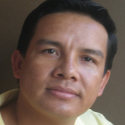 Suresh Tamang
Suresh Tamang
Suresh Tamang is a current social work doctoral student at University of Hawaii at Manoa. He has a Masters degree in Health, Population and Nutrition (2006) from Keele University, England. He is an Asia Pacific Leadership Program (APLP) Fellow in 2007 at the East West Center (EWC). He has worked with Non-Government organizations (NGO) in Nepal particularly in community development, public health research and training. He is focusing his research on rural aging and ethnic minorities.
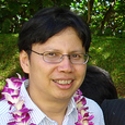 Turro Wongkaren
Turro Wongkaren
Turro Wongkaren is a Ph.D. candidate in Sociology at the University of Hawaii at Manoa. He holds MAs in Economics, in Asian Studies, and in Sociology; all from the University of Hawaii at Manoa. His research interests include family, intergenerational transfer, identity, and political economy.
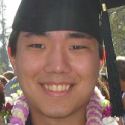 Evan Yazawa
Evan Yazawa
I am a computer scientist, a geek, a nerd, a tech-head. These labels were given to me the day I declared my undergraduate major and calcified with my diploma. More than labels, they were expectations of what I knew and how I would fit into society. It’s a common misconception that once you graduate in CS, you are suddenly a know-all guru of the Age of Information. Indeed, there are those who reinforce this stereotype, those who knew they wanted to work with computers at age four and pursued this dream with a frightening passion, devoting themselves to learning every facet of the science and ultimately achieving a level of expertise that would intimidate Turing. Not I. I started life with a love of biology. If you asked the childhood me what I wanted to be when I grew up, I wouldn’t hesitate to say that I wanted to become a scientist and explore jungles and other verdant habitats. Before I became a computer scientist, I was a biologist and spent a little less than half of my undergraduate studies learning biology. Thus, when I left Pomona College, diploma in hand, tech-head simply would do no justice to what I perceive myself as. I am a computer scientist with the heart of a biologist.

